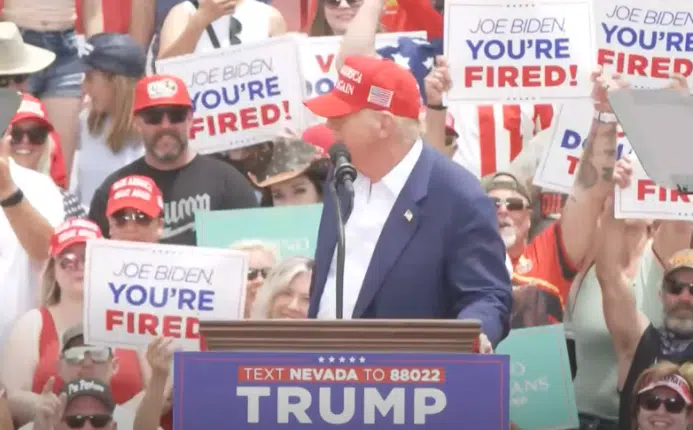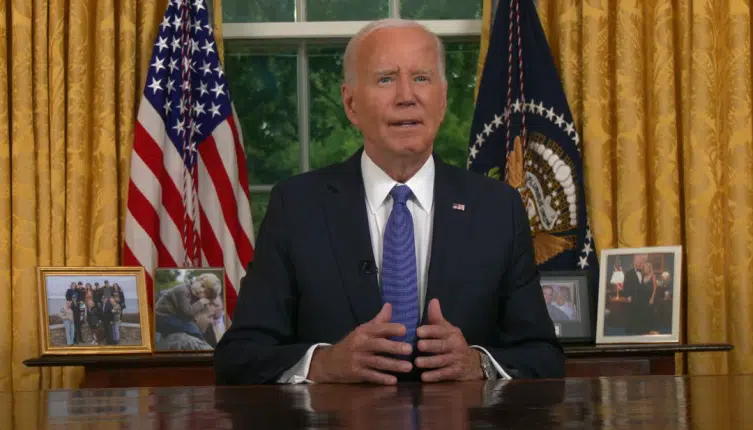
That was Department of Commerce Assistant Secretary Lawrence Strickling speaking to the State of the Net conference at a session entitled, “Internet Functions in Transition: Is the US and the World Ready?” on January 27.
Here, Strickling is acknowledging the Congressional action in the omnibus appropriations for fiscal year 2015 prohibiting the National Telecommunications and Information Administration (NTIA) from relinquishing the Internet Assigned Numbers Authority (IANA) functions to the Internet Corporation of Assigned Names and Numbers (ICANN).
Strickling affirmed that the Congressional prohibition is something which the agency had every intention of following. “We take that seriously,” he said.
Strickling added, “If the community needs more time, we have the ability to extend the IANA functions contract for up to four years.” Here, he is referring to the government’s contract with ICANN which allows it to be renewed at two-year increments.
On the surface, this appears very promising, and could indicate that NTIA would rather simply renew the contract than get into a fight with Congress over the issue this year.
Americans for Limited Government President Rick Manning issued a statement hailing that portion of Strickling’s remarks, saying, “We applaud Assistant Secretary Strickling for acknowledging Congress’ explicit prohibition in the omnibus on transferring Internet governance to ICANN this fiscal year. And we urge him to extend the contract by four years to allow sufficient time to allay any concerns over the potential transfer and not jeopardize the free and open Internet. It is clear that the transfer is not ready for primetime lacking both Congressional approval and certainty over the multistakeholder process.”
Manning added, “Extending the contract is not only the easiest thing to do, but given Congress’ clear prohibition on performing the transition prior the contract’s expiration, is the only thing to do.”
And yet, one cannot help but worry based on the rest of Strickling’s speech, which contains a lot of muddy language.
For example, Strickling indicates that the transition, despite Congressional language could still occur at the end of September: “I want to reiterate again that there is no hard and fast deadline for this transition. September 2015 has been a target date because that is when the base period of our contract with ICANN expires. But this should not be seen as a deadline… It is up to the community to determine a timeline [for transition] that works best for stakeholders…”
Based on this statement, the transition will occur when the contract ends if the so-called global multistakeholder community is prepared in the agency’s opinion. Meaning, all the agency has to do in its mind is simply allow the contract to expire in September, and then the transition will already be complete. And now it is simply up to the community to determine what the timeline for the transition is. Not Congress.
Yet, legally, Congressional action is required. Article 4, Section 3 of the U.S. Constitution says that only “The Congress shall have power to dispose of … property belonging to the United States.” The October 1, 2012 NTIA contract with ICANN states: “All deliverables under this contract become the property of the U.S. Government.”
So, absent Congressional authorization, this Internet transfer cannot occur. Right?
Yet in a April 28, 2014 letter responding to Rep. Darrell Issa (R-Calif.) who demanded NTIA’s legal authority to perform the transfer of the IANA functions property to ICANN, Strickling wrote, “the need for legislative authority to transfer government property does not concern the provision of the IANA functions under contract since no government property or assets are involved in the contract.”
How can Strickling square that circle? If the contract says the IANA functions are government property, and the Constitution says only Congress can transfer government property, how can Strickling say there is no government property involved in the IANA functions contract and no need for legislative authority to transfer those functions?
ICANN collects $300 million a year in revenue deriving from fees collected for domain names registered all over the world, which are only available by virtue of the IANA functions contract. That means the fair market value of any company that would perform those functions would be in the billions.
And according to Strickling, ICANN and its international partners get to decide when they are ready to create their global Internet monopoly.
Manning blasted that part of Strickling’s statement, warning the agency “not to attempt to find a cute way of getting around the Congressional prohibition.”
“It is not, as Strickling said, up to the community to determine a timeline that works best for stakeholders,” Manning said, noting that the omnibus requires the agency to inform Congress by August 17 what its decision regarding the IANA functions contract will be.
So, come mid-August, everybody should know what the agency intends to do. Hopefully, the contract is renewed again. But, Manning warned, “there had better not be a head-fake, for example, by simply allowing the contract to expire and transferring ownership of the IANA functions completely to ICANN without prior notice or Congress’ assent. That would be deceptive, unwise, and unconstitutional, since only Congress can transfer government property.”
We put nothing past the Obama administration to engage in eleventh hour shenanigans. Meaning, Congress has to be vigilant in asserting authority over IANA functions government property still.
Rep. Sean Duffy (R-Wis.), who authored the Internet transfer defund in the omnibus, is introducing another measure this year that this time explicitly prohibits any transfer from ever unilaterally occurring by any administration. Then, no transfer could ever occur without an affirmative vote of Congress.
In the meantime, Congressional committees need to hold Strickling’s feet to the fire on the separation of powers issues and asserting their authority over this issue. No less than the fate of the free and open Internet is at stake.
Robert Romano is the senior editor of Americans for Limited Government.






